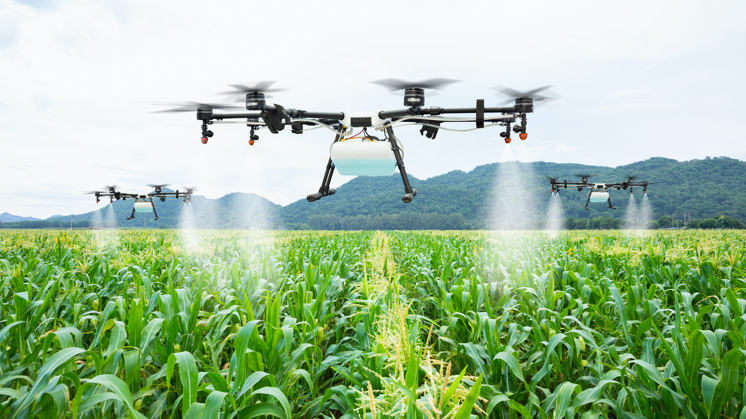Private companies to fund US$175m crops
The private sector is expected to fund nearly 100 000 hectares of selected food crops at an estimated cost of US$175 million, aligning with the Government’s policy of having private companies financing the production of raw materials for its processes.
The new Government policy mandates that the private sector ensures that at least 40 percent of its annual raw material requirements are met through value chain financing of production by farmers.
To ensure a consistent supply of raw materials for its manufacturing sector, the Government has encouraged increased private-sector participation in agriculture.
The sector’s reliance on agricultural inputs, particularly raw materials, accounts for approximately 65 percent of its total requirements. The strategic shift aims to bolster domestic production, reduce dependence on imports and support the growth of local industries.
Key private sector contractors namely Staywell, PHI, Delta and Northern Farming, under the umbrella of the Food Crop Contractors Association (FCCA), aim to contract a total of 97 000 hectares, according to the Government’s 2024/25 Summer Plan.
The private sector is expected to fund 45 000 hectares of maize production, targeting a yield of 270 000 tonnes at a cost of US$74 million. In addition, 40 000 hectares of soybeans are projected to yield 100 000 tonnes at a cost of US$52,8 million.
The country’s annual requirement for soya bean is 240 000 tonnes as soyabean is now a feed and complementary oilseed crop.
The strategic shift from soybeans being primarily considered an oilseed crop to a feed crop, coupled with the promotion of sunflower and cotton, has led to a reduction in the annual area requirement for soybeans, decreasing from 640 000 hectares to 240 000 hectares.
Furthermore, private players are expected to finance 12 000 hectares of sorghum production, with an estimated output of 24 000 tonnes at a cost of US$18,4 million.
This will bring the total area contracted by private players to 97 000 hectares, with an estimated output of 394 000 tonnes and a total investment of US$145,3 million.
The private sector programme will complement the National Enhanced Agriculture Productivity Scheme (NEAPS), originally introduced in 2020 as a special programme for import substitution.
The 2024/25 NEAPS will be funded by AFC Holdings, formerly Agribank, NMB, and CBZ with Government performance guarantees. In addition to food crops, the private sector also participates in funding other key crops, such as tobacco and cotton. Tobacco funding is primarily through contracts (93 percent), with 7 percent self-financed by the private sector.
The tobacco sector’s growth is guided by the Tobacco Transformation Plan, which aims to increase tobacco productivity and production to 300 million kilograms annually by 2025, diversify and increase the production of alternative crops, and increase the contribution of alternative crops to farmers’ incomes to 25 percent by 2025.
The total estimated cost of cotton production is US$248,1 million, with the private sector financing 33 percent of this cost.
The private sector is expected to contract 90 000 hectares of cotton.
Under the Pfumvudza/Intwasa cotton programme, the target is to plant 180 000 hectares. Each grower will be given two plots of 0,25 hectares each to access inputs, and both plots must be planted by October to qualify for input support.
-herald








